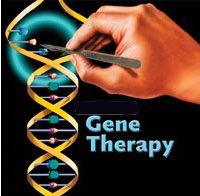
I just love to read stories like this.
About 25 years ago, Dr. Steven Rosenberg met a patient who was able to defeat his cancer not with chemotherapy, radiation, or surgery, but through his own immune system. Somehow he was able to turn his immune system into an agent that found and then killed his cancer cells. For the past 25 years, Dr. Rosenberg has been conducting research hoping to find out how to do this for other cancer patients. It seems that now, despite his hesitation to trumpet his own research results, there is reason to believe he has found a mechanism to turn the immune system into what CNN calls "cancer smart bombs".
The approach is high-tech. Rosenberg and his colleagues have created a genetically engineered virus that finds and attaches itself to cancer cells (melanoma, lung, colon, breast). The virus is inserted into the patient's lymphocytes (white blood cells that fight infection) in a lab setting. Then the patients undergo chemotherapy to destroy almost all of their original immune cells (that's the part that worries me!). Then the genetically altered lymphocytes are reintroduced into the body, along with Interleukin 2 to strengthen the immune system so recently devastated with chemotherapy. Finally, the newly invigorated immune system with its genetically altered lymphocytes begin to seek and destroy the cancer cells specifically targeted in the genetic engineering. All of this high-tech information is reported in this week's journal of Science.
Obviously, Rosenberg's involvement in this story is critical and will continue to inspire cancer researchers as they develop the approach further. But what about the patients?
Mark Origer is one of the patients who benefitted from the clinical trials. His CNN story is available in video format (I recommend going to the above-mentioned smart bomb link and initializing the video from there). The short summary of his experience is that his recurrent melanoma threated his life and his hopes to walk his daughter down the aisle for her wedding. Origer participated in the trial and has been cancer-free for 18 months. The video clearly touches the emotional heart strings as he speaks about that special day at his daughter's wedding.
When I was diagnosed with cancer, one of the most distressing aspects was anticipating that I might not be alive to attend special family events such as weddings or the birth of grandchildren. Researchers like Rosenberg and patients like Origer give all of us cancer patients hope that we can be there for those special occasions.

No comments:
Post a Comment